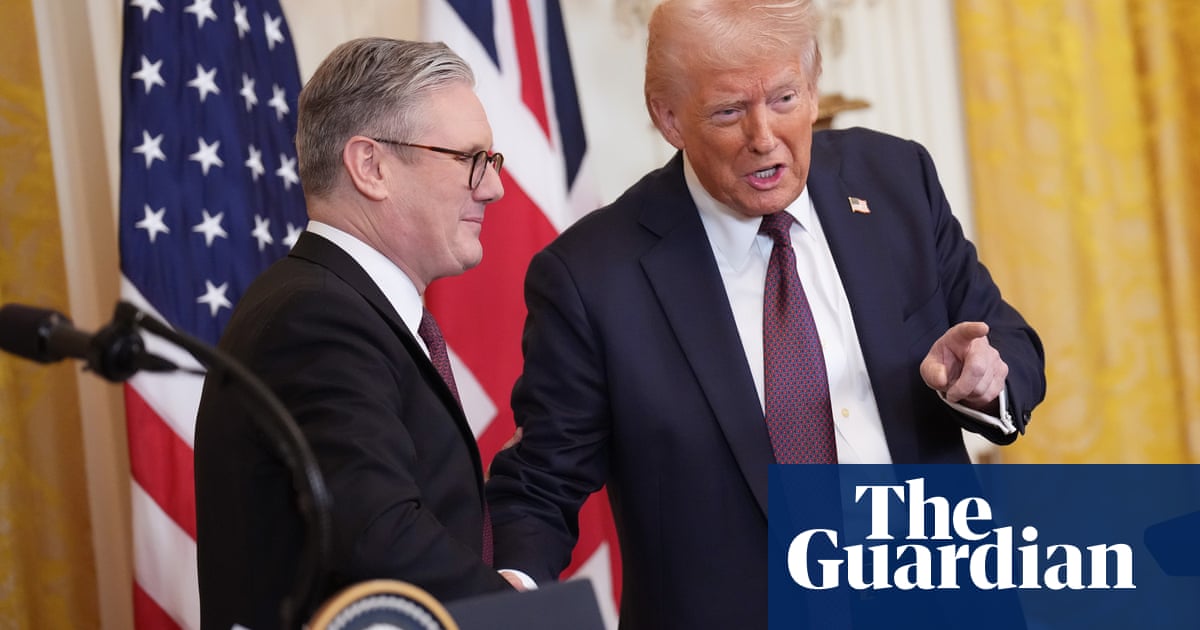A number of MPs and peers have called forDonald Trumpto be blocked from addressing parliament when he visits the UK.
The US president hassuggested Buckingham Palace is “setting a date for September”for him to come to Britain.
But some parliamentarians have voiced concerns that it would be “inappropriate” for him to speak in the Palace of Westminster as his predecessors Barack Obama, Ronald Reagan and Bill Clinton did.
First reported in the Times, a message sent to Lord McFall of Alcluith, the lord speaker, said: “If it is suggested that he be invited to address both Houses of Parliament, I hope that you and Lindsay will suggest that would be inappropriate on this occasion because of his attitude towards and comments about the UK, parliamentary democracy, the Nato alliance and Ukraine.”
Efforts to prevent Trump addressing parliamentarians are being co-ordinated by Lord Foulkes, a minister in Sir Tony Blair’s former government.
Foulkes said: “While the government is obliged to deal with governments of all kinds, parliament should not welcome a leader who is anti-democratic and flouts the courts and the rule of law.
“He also fails to condemn the Russian invasion of Ukraine, which all parties in the UK parliament have done.”
Meanwhile, the Labour MP Kate Osborne is said to have asked the Commons speaker, Lindsay Hoyle, to follow his predecessor John Bercow in opposing an address from the president.
In a letter to Hoyle, she reportedly said: “I am asking you as the speaker to agree it would be inappropriate and mirror the previous speaker’s recommendation.”
Osborne has been contacted for comment.
Precedent for second-term US presidents who have already made a state visit is usually tea or lunch with the monarch at Windsor Castle, as was the case for George W Bush and Obama.
Sign up toFirst Edition
Our morning email breaks down the key stories of the day, telling you what’s happening and why it matters
after newsletter promotion
Keir Starmer handed Trump what he described at the time as a “truly historic” personal invitation from the king for a second state visit when they met at the White House in February.
However, reports suggest that the venue for the trip is now expected to be Windsor Castle, rather than Balmoral or Dumfries House, as previously thought.
Speaking to reporters in the Oval Office last week, Trump said: “They’re going to do a second, as you know, a second fest … that’s what it is: a fest, and it’s beautiful, and it’s the first time it’s ever happened to one person.
“And the reason is we have two separate terms, and it’s an honour … I’m a friend of Charles, I have great respect for King Charles and the family, William, we have really just a great respect for the family.”
